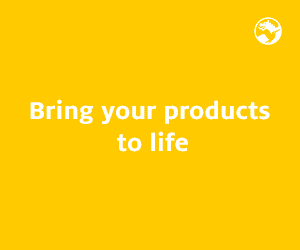The latest news, trends, analysis, interviews and podcasts from the global food and beverage industry
‘Italian’ tomato purees sold by various UK supermarkets appear to contain tomatoes grown and picked in China using forced labour, according to a report by the BBC.
Testing commissioned by the BBC World Service found that in total, 17 products, most of them own-brands sold in UK and German retailers, are likely to contain Chinese tomatoes.
Some have ‘Italian’ in their name such as Tesco’s ‘Italian Tomato Purée,’ while others have ‘Italian’ in their description, such as Asda’s double concentrate that says it contains ‘puréed Italian grown tomatoes’ and Waitrose’s ‘Essential Tomato Purée,’ describing itself as ‘Italian tomato puree’.
The supermarkets whose products BBC World Service tested dispute these findings.

In China, most tomatoes come from the Xinjiang region, where their production is linked to forced labour by Uyghur and other largely Muslim minorities.
The United Nations (UN) accuses the Chinese state of torture and abuse of these minorities, whom China view as a security risk. China denies that it forces people to work in the tomato industry and says its workers’ rights are protected by law. According to the BBC, China says that the UN report is based on ‘disinformation and lies’.
China produces around one third of the world’s tomatoes, with the north-western region of Xinjiang recognised as an ideal climate for cultivating the crop. However, Xinjiang has also faced global scrutiny due to reports of human rights abuses, including mass detentions since 2017.

According to human rights organisations, over a million Uyghurs have been detained in what China describes as ‘re-education camps.’ Allegations have emerged suggesting some detainees have been subjected to forced labour, including in Xinjiang's tomato fields.
The BBC recently spoke to 14 individuals who reported experiencing or witnessing forced labour in the region’s tomato production over the past 16 years. One former detainee, speaking under a pseudonym, claimed workers were required to meet daily quotas of up to 650kg, with punishments for those who failed.
The BBC said: “It is hard to verify these accounts, but they are consistent, and echo evidence in a 2022 UN report, which reported torture and forced labour in detention centres in Xinjiang”.
By piecing together shipping data from around the world, the BBC discovered how most Xinjiang tomatoes are transported into Europe – by train through Kazakhstan, Azerbaijan and into Georgia, from where they are shipped onwards to Italy.
Some retailers, such as Tesco and Rewe, responded by suspending supply or withdrawing products, while others, including Waitrose, Morrisons, and Edeka, disputed the findings and conducted their own tests, which contradicted the claims. Lidl confirmed using Chinese tomatoes in a product sold briefly in Germany in 2023 due to supply issues.

Questions have been raised about the sourcing practices of Antonio Petti, a major Italian tomato-processing company. Shipping records indicate the company received over 36 million kg of tomato paste from Xinjiang Guannong and its subsidiaries between 2020 and 2023. Xinjiang Guannong is a major supplier in China, which produces a significant proportion of the world’s tomatoes.
In 2021, one of the Petti group’s factories was raided by the Italian military police on suspicion of fraud – it was reported by the Italian press that Chinese and other foreign tomatoes were passed off as Italian. A year after the raid, the case was settled out of court.
During an undercover visit to a Petti factory, a BBC reporter captured footage showing barrels labelled as containing tomato paste from Xinjiang Guannong dated August 2023. Petti denied recent purchases from Xinjiang Guannong, stating its last order was in 2020. The company acknowledged sourcing tomato paste from Bazhou Red Fruit, which shares links to Xinjiang Guannong, but stated it would cease importing Chinese tomato products and enhance supply chain monitoring.
This firm "did not engage in forced labour," a spokesperson for Petti told the BBC. However, the investigation found that Bazhou Red Fruit shares a phone number with Xinjiang Guannong, and other evidence, including shipping data analysis, which suggests that Bazhou is its shell company.
The Petti spokesperson added: “In future we will not import tomato products from China and will enhance our monitoring of suppliers to ensure compliance with human and workers’ rights".
The US has introduced strict legislation to ban all Xinjiang exports, while Europe and the UK have taken a softer approach, allowing companies to self-regulate to ensure forced labour is not used in supply chains.
The findings underline the importance of robust traceability systems and the challenges of maintaining transparency in global supply chains. With the EU introducing stricter regulations on forced labour in supply chains, the UK’s reliance on self-regulation may face increased scrutiny.
#tomato #China #forcedlabour #humanrights







.jpg)